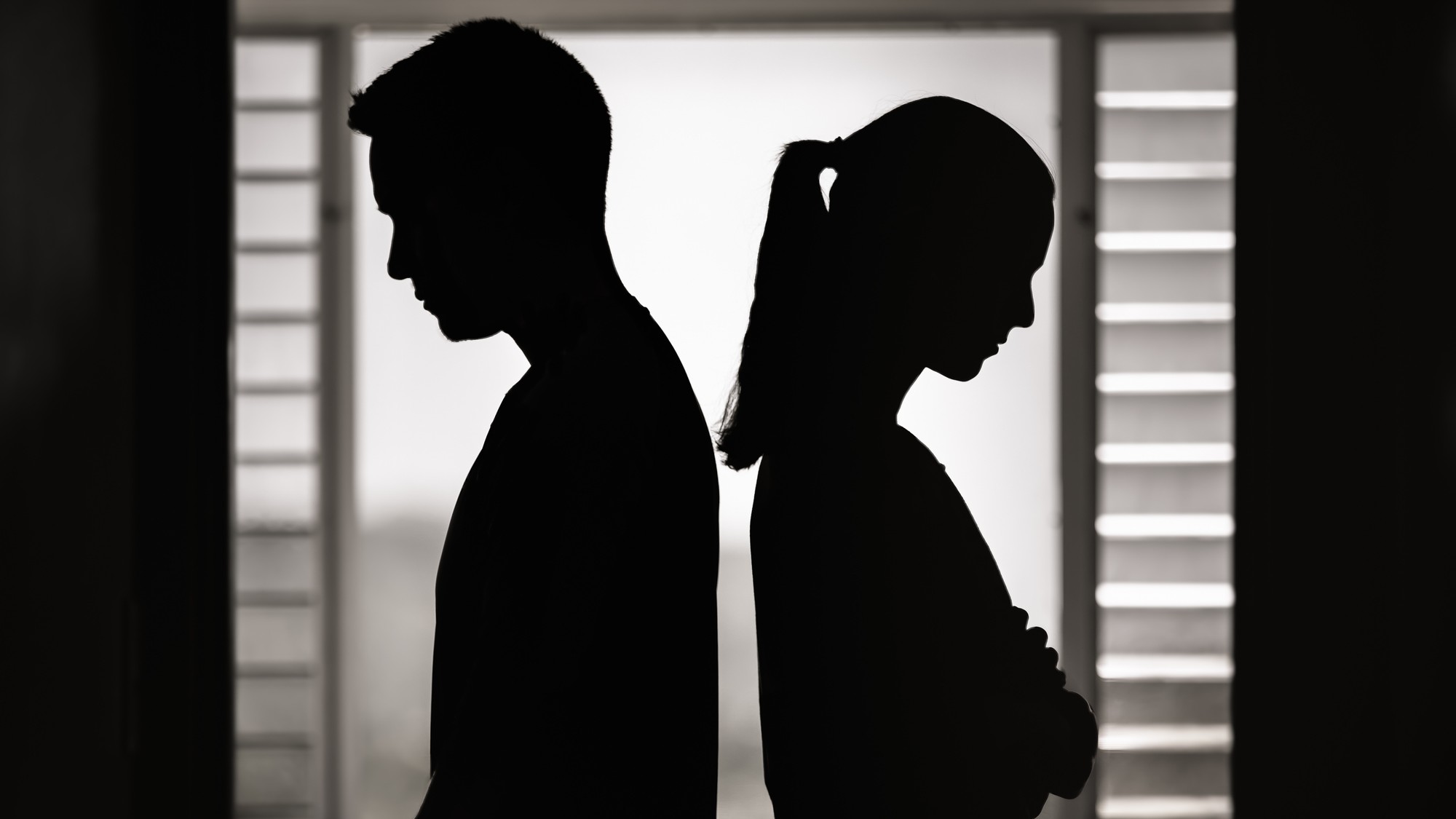Why Japanese residents can't watch their country's Oscar-nominated #MeToo documentary
Shiori Ito became one of the faces of Japan's #MeToo movement. Her documentary about that experience, 'Black Box Diaries,' is up for an Academy Award, even as it struggles to be screened back home.


A free daily email with the biggest news stories of the day – and the best features from TheWeek.com
You are now subscribed
Your newsletter sign-up was successful
Japanese journalist Shiori Ito's debut documentary "Black Box Diaries" is not only one of the most acclaimed films of the year, but also a high point in Japanese cinema. Nominated for Best Documentary at this year's Academy Awards — a first for any Japanese director — Ito's harrowing adaptation of her 2017 memoir "Black Box" has been praised for its depiction of her alleged sexual assault at the hands of a high-profile Japanese journalist, and the ensuing fight for legal justice. But while "Black Box Diaries" continues to rack up an impressive list of plaudits, Ito's film has been conspicuously absent from theaters in Japan.
Why won't Japanese theaters screen the film?
Ito's "advocacy" in the face of "Japan's society norms toward sexual assault" made her the "face of Japan’s #MeToo Movement," said The Diplomat. At the same time, her film's "portrayal of sexual violence and use of contested footage" has put its Japanese theatrical release in "limbo." Japanese theaters are "refusing" to screen "Black Box Diaries" due to "legal concerns" stemming from allegations by Ito's former legal team that she'd used "unauthorized security footage and audio in her film," Japan's Kyodo News said. The unauthorized material has been a "source of friction" between Ito and the legal counsel that helped her win a civil case against prominent Japanese journalist Noriyuki Yamaguchi, whom Ito alleges raped her in 2015, the BBC said. Yamaguchi has denied the allegations. Ito's onetime attorneys claim that her using certain hotel CCTV footage not only "violated trust and put her sources at risk," but happened after the filmmaker vowed "not to use it outside of court proceedings."
Now that footage has become an "impediment" to getting the film screened in Japan, Deadline said. Distributors and theaters "in this case are more risk averse in Japan than, for example, the States," said "Black Box Diaries" producer Eric Nyari to the outlet. Not only do they feel "vulnerable to [legal] claims and trouble," but "a lot of these theaters are not only owned by large corporations, they're owned by large corporations that also own hotels," making this a "particularly sensitive case for them."
The Week
Escape your echo chamber. Get the facts behind the news, plus analysis from multiple perspectives.

Sign up for The Week's Free Newsletters
From our morning news briefing to a weekly Good News Newsletter, get the best of The Week delivered directly to your inbox.
From our morning news briefing to a weekly Good News Newsletter, get the best of The Week delivered directly to your inbox.
Do Japanese cultural taboos play a role?
Ito maintains that the reason her film has struggled to find distribution in her home country is largely connected to the movie's subject matter, and Japan's ongoing taboos around addressing sexual assault against women by powerful men. "They know it's no legal issue," Ito said to Deadline. "They're more scared about the public voice." Ito has also claimed Japan's reluctance to address #MeToo allegations prompted her to use the contested footage in the first place. Given that there are "people in society who continue to deny sexual violence," Ito said in a statement regarding the controversy, she came to the conclusion that "to convey the reality of sexual violence that has been locked away in a 'black box,' this footage was essential."
In part, Ito's willingness to address the issue head-on comes from the fact that she grew up an "outsider in this society," and has a "very international" and "very different" perspective, said Nyari to The Japan Times. "Particularly on the issues that surround the film: sexual violence, the institutions around it, the laws."
While there has been no "official explanation" for the lack of in-country distribution, and it "remains unclear" how much of those challenges are based on the legal issues with the film's footage, Ito insists that ultimately "Japan is still not ready to talk about [it]," said the BBC.
A free daily email with the biggest news stories of the day – and the best features from TheWeek.com
Rafi Schwartz has worked as a politics writer at The Week since 2022, where he covers elections, Congress and the White House. He was previously a contributing writer with Mic focusing largely on politics, a senior writer with Splinter News, a staff writer for Fusion's news lab, and the managing editor of Heeb Magazine, a Jewish life and culture publication. Rafi's work has appeared in Rolling Stone, GOOD and The Forward, among others.
-
 Political cartoons for February 15
Political cartoons for February 15Cartoons Sunday's political cartoons include political ventriloquism, Europe in the middle, and more
-
 The broken water companies failing England and Wales
The broken water companies failing England and WalesExplainer With rising bills, deteriorating river health and a lack of investment, regulators face an uphill battle to stabilise the industry
-
 A thrilling foodie city in northern Japan
A thrilling foodie city in northern JapanThe Week Recommends The food scene here is ‘unspoilt’ and ‘fun’
-
 A thrilling foodie city in northern Japan
A thrilling foodie city in northern JapanThe Week Recommends The food scene here is ‘unspoilt’ and ‘fun’
-
 Samurai: a ‘blockbuster’ display of Japan’s legendary warriors
Samurai: a ‘blockbuster’ display of Japan’s legendary warriorsThe Week Recommends British Museum show offers a ‘scintillating journey’ through ‘a world of gore, power and artistic beauty’
-
 The 8 best superhero movies of all time
The 8 best superhero movies of all timethe week recommends A genre that now dominates studio filmmaking once struggled to get anyone to take it seriously
-
 Quiet divorce is sneaking up on older couples
Quiet divorce is sneaking up on older couplesThe explainer Checking out; not blowing up
-
 Heated Rivalry, Bridgerton and why sex still sells on TV
Heated Rivalry, Bridgerton and why sex still sells on TVTalking Point Gen Z – often stereotyped as prudish and puritanical – are attracted to authenticity
-
 Film reviews: ‘Send Help’ and ‘Private Life’
Film reviews: ‘Send Help’ and ‘Private Life’Feature An office doormat is stranded alone with her awful boss and a frazzled therapist turns amateur murder investigator
-
 February’s new movies include rehab facilities, 1990s Iraq and maybe an apocalypse
February’s new movies include rehab facilities, 1990s Iraq and maybe an apocalypsethe week recommends Time travelers, multiverse hoppers and an Iraqi parable highlight this month’s offerings during the depths of winter
-
 Admin night: the TikTok trend turning paperwork into a party
Admin night: the TikTok trend turning paperwork into a partyThe Explainer Grab your friends and make a night of tackling the most boring tasks
